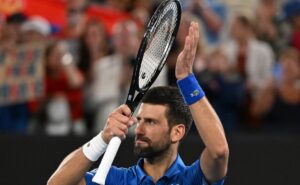

For Hemrajani, the rise of the experience economy represents a shift in consumer behaviour, where people are seeking more than just passive entertainment—they are increasingly investing in experiences that engage all their senses. While players like Zomato and Swiggy are betting big on this opportunity, Hemrajani remains cautious. He points out that putting money into the sector isn’t enough—sustainable success requires addressing deeper challenges like infrastructure gaps, licensing hurdles, and regional disparities.
He likens the current state of India’s entertainment infrastructure to building an airline without an airport, underlining the mismatch between the rapid consumer demand for experiences and the supporting infrastructure. According to him, challenges like city infrastructure, weather constraints, and policy hurdles must be resolved before India can fully embrace the global entertainment calendar.
Nevertheless, Hemrajani is optimistic about the future. He sees a cultural shift where young Indians, empowered by social media platforms like Facebook, Instagram, and YouTube, are eager to engage with global and regional content alike. He points to the growth of regional cinema, music, and culture as key drivers of this change. For Hemrajani, this marks the beginning of a new era in India’s entertainment sector—one that promises to grow over the next decade, provided the industry can overcome the many challenges still ahead.
Below are the excerpts from the interview.
Q: It’s been a 25-year journey for you, and in many ways, you were ahead of the curve. You bet on this experience economy before it became the experience economy. As you look at where things are today, are we on the cusp of a breakout moment for the experience economy in India?
Hemrajani: It seems like that. And I’m not so sure whether it’s a good thing to be before your time or not. It’s like the analogy from Formula One. The car that’s in front of you is cutting through and creating the slipstream and using more power and energy. And the guy who is behind you is using 25% less, and he can press the DRS and get ahead of you. So, sometimes you want other players and other people to come and do the heavy lifting as well, to be able to create the market, to be able to spend money, to be able to get new users and consumers and get people used to this experience economy. So, we’ve done all the heavy lifting for many years alone, and I think it’s important to have this come together as an industry. So, I think this is the start of what we think is going to be the next 10 years of a change in how people consume and view entertainment. It’s a change. I’m not saying it’s a good or a bad thing.
Q: Why are you being so circumspect? There are a lot of other players in the market who seem to be wanting to bet on this opportunity, the likes of Zomato, Swiggy and others. I mean, they’re putting big bucks into this business.
Hemrajani: I don’t think just putting big bucks is going to cut it. I think you’ve got to be really careful. When I look at the entertainment chunk, it’s about people going out – with their spare time, what do they do? It is going out for a drink or a meal, you’ve got TV and OTT platforms at home, so you want to spend time there. There are movies, so go to the movie theatre. Regional is playing a very important role in shaping India’s entertainment economy. Look at the films from the southern part of the country, look at Marathi films, look at what’s happening with Punjabi music, there’s a big change, and there’s a lot of pride and there’s a lot of connection.
So, why I’m being circumspect is that there’s a lot of other catching up to do, I think, between single window clearances and licenses on venue, city infrastructure. When you build a venue, or there is a venue in any other part of the world which is 20 miles away, that’s 20 minutes from home. 20 miles in India is four hours away and that is not sustainable. You can’t do an event every weekend.
We have three months of the year which is really hot, and you can’t do anything outdoors. A city like Mumbai has about four months of monsoon. So that takes away seven months. So literally, you’ve got five months. It has to match the global calendar on when artists are touring because otherwise, it’s not feasible. It’s not economically viable for them or us. So, the reason I’m being circumspect is that consumers have woken up to this, because the Facebook of India is Facebook, the Instagram of India’s Instagram, the YouTube of India’s YouTube, unlike China, where everything is closed.
We have a large English-speaking population, and also there’s this pride of our own culture and heritage in the music that you see. And when you have these social media platforms, kids are now listening and waking up to this, and you’re getting data and analytics. So, the consumers have woken up. They’re far ahead of their time. We’re happy to match up to their needs and expectations. But I think there’s a lot of catching up to do on policy, on infrastructure, city infrastructure, just not entertainment infrastructure. So, the reason I’m being circumspect is, while this is the start of something big, how big can it get? How will you approach it? How will we succeed and do it well, you are one bad news cycle away from something going wrong at an event.
Q: I still want to delve a little deeper into this economy that’s opening up. And as you pointed out, you know, there’s, there’s a lot that requires work at this point in time, and plenty of it is work in progress.
Hemrajani: It is almost like starting an airline but not having an airport.
Q: Is it that bad?
Hemrajani: It is. You tell me today what the venues are and where the infrastructure is. When you do a venue build-up, when you do stage infrastructure, you do light, and sound, but you don’t have enough. When we do one Lollapalooza, we’re creating a city overnight and then tearing it down. And overnight means it takes us one month to build. It shouldn’t be like that. You need public parks like Hyde Park, and Central Park. So, you need public parks, arenas, venues, stadiums.
I’m very thankful to the stadium in Ahmedabad, it was Jay Shah, BCCI and the Gujarat Cricket Association that really took a bet on this and said for the first time in the history of India, we’re using an active cricket stadium and the world’s largest cricket stadium to put up a show there, it hasn’t happened before. Why should it take 75 years? That is my question. Anywhere in the world, it happens every day.
Watch the accompanying video for the entire conversation.



